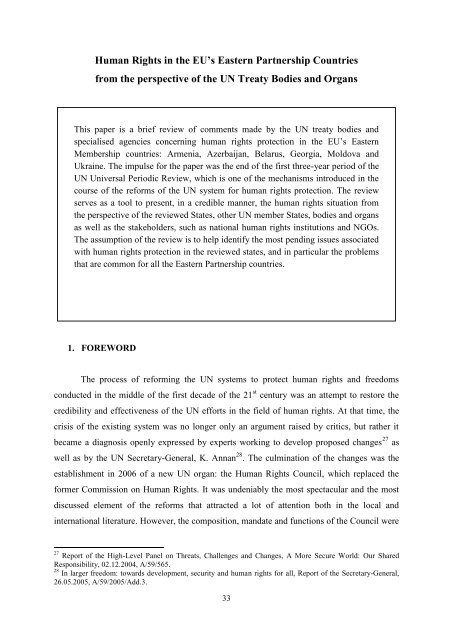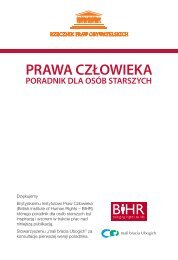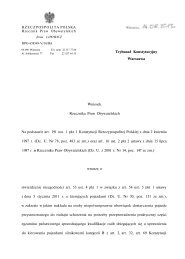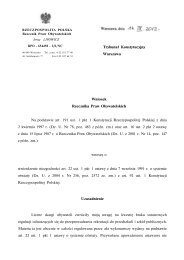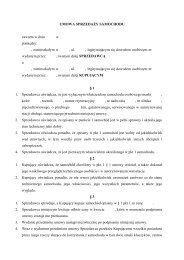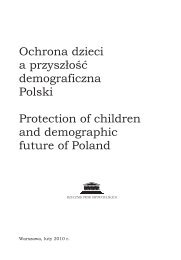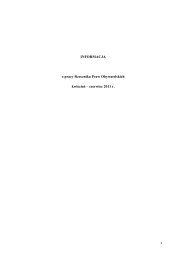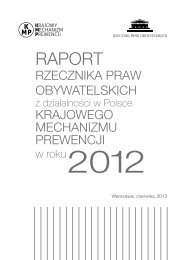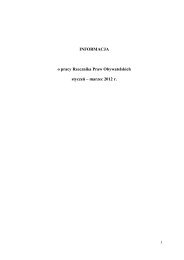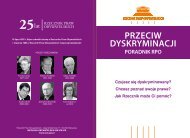Prawa człowieka w krajach Partnerstwa Wschodniego UE z ...
Prawa człowieka w krajach Partnerstwa Wschodniego UE z ...
Prawa człowieka w krajach Partnerstwa Wschodniego UE z ...
You also want an ePaper? Increase the reach of your titles
YUMPU automatically turns print PDFs into web optimized ePapers that Google loves.
Human Rights in the EU’s Eastern Partnership Countries<br />
from the perspective of the UN Treaty Bodies and Organs<br />
This paper is a brief review of comments made by the UN treaty bodies and<br />
specialised agencies concerning human rights protection in the EU’s Eastern<br />
Membership countries: Armenia, Azerbaijan, Belarus, Georgia, Moldova and<br />
Ukraine. The impulse for the paper was the end of the first three-year period of the<br />
UN Universal Periodic Review, which is one of the mechanisms introduced in the<br />
course of the reforms of the UN system for human rights protection. The review<br />
serves as a tool to present, in a credible manner, the human rights situation from<br />
the perspective of the reviewed States, other UN member States, bodies and organs<br />
as well as the stakeholders, such as national human rights institutions and NGOs.<br />
The assumption of the review is to help identify the most pending issues associated<br />
with human rights protection in the reviewed states, and in particular the problems<br />
that are common for all the Eastern Partnership countries.<br />
1. FOREWORD<br />
The process of reforming the UN systems to protect human rights and freedoms<br />
conducted in the middle of the first decade of the 21 st century was an attempt to restore the<br />
credibility and effectiveness of the UN efforts in the field of human rights. At that time, the<br />
crisis of the existing system was no longer only an argument raised by critics, but rather it<br />
became a diagnosis openly expressed by experts working to develop proposed changes 27 as<br />
well as by the UN Secretary-General, K. Annan 28 . The culmination of the changes was the<br />
establishment in 2006 of a new UN organ: the Human Rights Council, which replaced the<br />
former Commission on Human Rights. It was undeniably the most spectacular and the most<br />
discussed element of the reforms that attracted a lot of attention both in the local and<br />
international literature. However, the composition, mandate and functions of the Council were<br />
27<br />
Report of the High-Level Panel on Threats, Challenges and Changes, A More Secure World: Our Shared<br />
Responsibility, 02.12.2004, A/59/565.<br />
28<br />
In larger freedom: towards development, security and human rights for all, Report of the Secretary-General,<br />
26.05.2005, A/59/2005/Add.3.<br />
33


